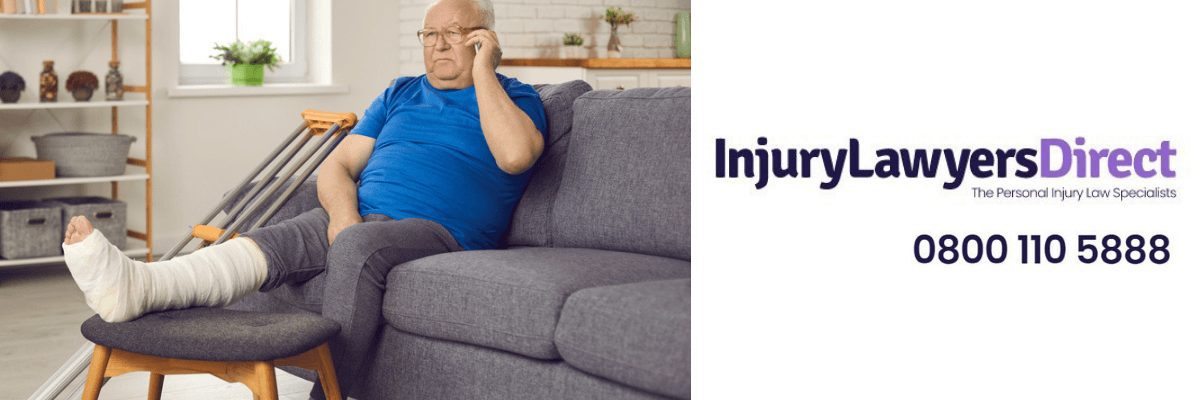We all put our trust in NHS staff. After all, they’re highly trained in their profession and experts in their field. Whilst in their care, we (quite rightly!) expect to be safe.
That’s why, acts of medical negligence can be incredibly distressing. The trust between you and your healthcare provider is broken and the impact can be devastating – particularly if the incident in question should never have happened in the first place.
Such incidents are known as ‘NHS Never Events’. And if you’ve been affected, you could be entitled to compensation. As specialist medical negligence solicitors, we have excellent knowledge and experience in this area – and, here, we explore exactly what these events are and the steps you should take to get the financial justice you deserve.
What is an NHS Never Event?
According to the NHS, ‘Never Events’ are defined as:
“Serious, largely preventable patient safety incidents that should not occur, if healthcare providers have implemented existing national guidance or safety recommendations”
In other words, they’re mistakes that are avoidable. If the correct procedures and protocols are followed, in theory, there should be zero chance of these incidents ever happening. Which is why, if they do, from a legal perspective they’re completely indefensible.

The type and frequency of Never Events
When first introduced in 2009, the Never Events list featured 8 overarching scenarios that are considered a Never Event. Now, it features over 12. And according to recent data from the NHS, between 1st April 2020 and 30th November 2020, 226 serious incidents occurred which meet the definition. These included:
- 87 instances of wrong-site surgery (i.e. surgery performed on the wrong person or wrong part of the body)
- 52 instances of retained foreign object post-procedure (i.e. items such as cotton swabs, guidewires and needles that are left behind following surgery)
- 18 instances of misplaced nasogastric or orogastric tubes (i.e. when tubes used to feed a patient or administer medication are wrongly placed)
- 17 instances of wrong implant or prosthesis (i.e. situations where a different implant or prosthesis is used to the one specified)
- 15 instances of medication being administered via the wrong route (e.g. intravenous medication given orally)
- 17 instances of connection to an air flowmeter rather than oxygen
- 6 instances of the transfusion of ABO-incompatible blood components or organs
- 5 instances of insulin overdose
- 4 instances of failure to install a functional collapsible shower or curtain rail
- 2 instances of patient scalding
- 1 instance of mis-selection of a strong potassium solution
- 1 instance of mis-selection of high strength midazolam
- 1 instance of chest or neck entrapment in bedrails
It’s important to note these events are very rare. Compared to the millions of NHS-based surgical and medical procedures that are performed each year without a hitch, 226 is a small number. But they do still happen and they can cause serious harm to the patient. For example, you may need to undergo a further unnecessary procedure to rectify the mistake and the consequences can be potentially life-changing.
When a Never Event occurs, the NHS trust involved is expected to conduct an investigation, identify the cause and learn from its mistakes. But, as the patient affected, that offers little consolation.
One Never Event is always one too many. All patients have a right to safe treatment and, if you’ve been deprived of that right and fallen victim to a medical error of this magnitude, it’s important to hold those responsible accountable for their actions. Not only can claiming help support you and your family during your recovery, it can also help to prevent the same thing from happening again.

Claiming for an NHS Never Event
To make a claim for a Never Event in healthcare, the following criteria must be met:
- You must have been injured as a result of the Never Event. A ‘near miss’ is not sufficient to pursue compensation for your experience.
- A medical professional, who was responsible for your care, must be at fault for that event.
- The incident must have occurred within the last 3 years.
If you believe you could be eligible, the first step is to reach out to our team of medical negligence solicitors for a free no-obligation consultation. This is just a quick chat to discuss your experience over the phone. And once we know a bit more, we can advise on whether your case meets the criteria outlined above and the likelihood of a claim being successful.
Unfortunately, we can’t turn back time or reverse the effects of the NHS negligence you have experienced. But if you decide that making a claim is the right option for you, we can take care of the full process on your behalf. Working on a completely ‘no win no fee’ basis, we’ll do everything in our power to ensure you receive an adequate level of compensation for your suffering.
So, why not get in touch? To find out more or begin your NHS claim, simply give us a call on 0800 110 5888. Or if you prefer, fill out our online contact form and a member of the team will respond as soon as possible.

